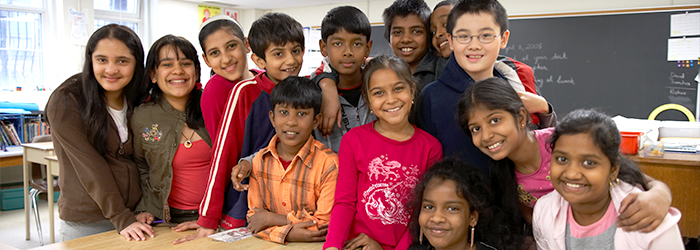JOIN OUR EMAIL LIST
Sign up to receive email updates about UNICEF’s work for every child. Get a closer look at UNICEF programs in action, hear about emergency response efforts, and learn how you can help children. You can unsubscribe at any time.

Governments who ratify the Convention on the Rights of the Child have committed to give priority consideration to children as their first duty. Governance for children involves creating the processes and mechanisms that support decision-making that is good for children. It includes giving children a first call in the allocation of budgets, formulating laws that protect and support children’s human rights, and other governance processes to ensure children are visible and their best interests given priority.
While the actions of governments may seem remote from the daily lives of children, children are more affected by the actions – or inactions – of government than any other group. Almost every area of government policy affects children to some degree, directly or indirectly. Children are particularly vulnerable because of their dependence on adults, their lesser social and legal status, and the risk to their lifelong prospects if deprived of the conditions necessary for good childhood development.
In all actions concerning children, whether undertaken by public or private social welfare institutions, courts of law, administrative authorities or legislative bodies, the best interests of children shall be a primary consideration.
- Article 3, Convention on the Rights of the Child
Everyone has a role to play in helping make Canada a great place to grow up . Read more »